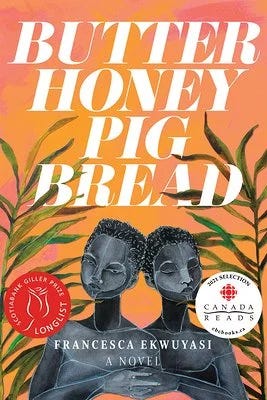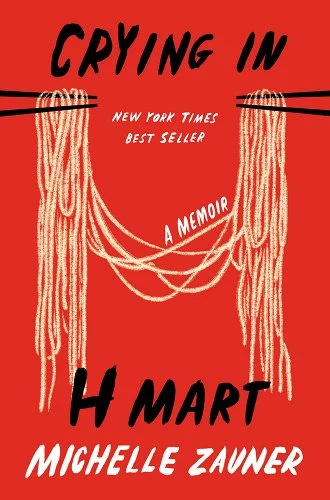All of the women on my mother’s side of the family are known for their talents in the kitchen. Like my grandmother before them, my mother, aunts, cousins, and my sister regularly produce delicious meals and elaborate desserts. I am the only one who does not, and likely will never, do either of these things.
I take after my father’s mother. A dutiful cook at best, my grandmother was fond of the phrase “pick your poison,” and would often deploy it at dinner time, back when my dad was growing up. From what I can remember of her, I suspect she well knew how apt it was, but none of her four children, or even my grandfather, would have dared so much as a rueful laugh. She was tiny in stature, but formidable in a way that I am not. The first time I said it at dinner in my own house, my kids were confused and a little alarmed. They get it now, though, and can even deliver it, seasoned with just the right amounts of resignation and amusement. I hand down idioms the way other mothers hand down recipes.
Even though I do not enjoy cooking, I do love to be in the kitchen when someone is making food. I am the sort of person people love to cook for, because I have a big, enthusiastic appetite and genuinely enjoy washing dishes. The next best thing to actually being in the kitchen, of course, is reading about it.
If you’re hungry for a family story that revolves around food, these books will satisfy that craving, and then some.
Butter Honey Pig Bread, by Francesca Ekwuyasi
This is the story of three Nigerian women, a mother and twin daughters. It is told in four parts, beginning with Kambirinachi. She believes herself to be an Ogbanje—a spirit born as a human child, whose purpose is to grieve humanity by dying in infancy or toddlerhood—only she is an Ogbanje who has betrayed her kind by refusing to die, having instead become attached to her human family. Her love for her daughters is fierce, yet she struggles to express it, especially after the untimely death of her husband, for fear they will be taken next. When their grief over his passing is compounded by another traumatic event in their household, Kambirinachi and her daughters, Taiye and Kehinde, all become estranged from each other. Taiye leaves Nigeria for London, to attend university and, later, culinary school. Kehinde also leaves for university, in Montreal, where she works part-time in a restaurant. Food is central to both of their stories, and could bring the three women back together—if they could only gather around the table long enough to eat together. It’s a powerful tale, full of sensual detail, and “hard lessons in loving the living.” Not always an easy read, but a compelling one.
Crying in H Mart, by Michelle Zauner
I’ll admit, I was a little skeptical when I first opened this memoir. I don’t do much background research before starting a book, and, being an ornery sort of reader, knowing that a book is wildly popular always triggers a little resistance. I much prefer to feel as though I’m discovering a hidden gem, or boosting a backlist title that has been swept away by the tide of shiny new releases.
Also, as I’ve mentioned in an earlier post, I am not keen on memoirs that are all about tears, or set on idealizing the recently departed. So I almost stopped reading on page one, when I ran into this:
“…you’ll likely find me crying by the banchan refrigerators, remembering the taste of my mom’s soy-sauce eggs and cold radish soup. Or in the freezer section, holding a stack of dumpling skins, thinking of all the hours that Mom and I spent at the kitchen table folding minced pork and chives into the thin dough.”
Oh no, I thought. A sentimental paean to a practically perfect mother, told through their shared love of traditional Korean cuisine. Not my jam, at all, but I get why people like it. Still, I read on anyway—I’m a fast reader, and will not abandon a book until I’ve read at least a third of it—and I am so, so glad I was wrong about everything except the food part. Zauner’s relationship with her mother was intense and complicated, and I don’t think I can improve upon the flap jacket copy’s description of her voice, which is “searingly candid” and “radiantly alive.” I highly recommend it, just like everyone else who has ever read it.
My kids eat peanut butter and jam sandwiches for dinner.
Not every night, mind. About once a month, when it’s too late in the day to order in, and I am just that desperate to put something on the table that hits all four “nos”—as in no effort, no time, no dishes, no complaints.
A few nights a week, I pull off that “proper” meal we mothers are supposed to whip up, with joyful ease, on the daily. Spaghetti and meatballs. Burgers on the grill. Freshly baked muffins, with scrambled eggs and bacon or ham. Tacos with all the toppings. The rest of the week though, we’re eating pancakes or chicken nuggets. Sometimes pizza or Chinese food. Quite often it’s rotisserie chicken, reheated one way or another. Last night it was hot dogs and fries. There is no formal meal plan, though believe me, I see the merit. When my kids ask me what’s for dinner before, say, 4pm, I always just say “food,” and it’s hard to say who’s most annoyed by the exchange.
I realize how ridiculous it would be to hold myself, a solo parent, to a standard of domestic cookery that hit its peak in my grandmother’s era—a standard which was essentially established to keep women in the kitchen and out of positions of power. I believe my kids are as nourished by my undivided attention at the dinner table as they are by the food. I want to spend this time having real conversations with them, not convincing them to eat their broccoli, or feeling resentful that they didn’t fully appreciate the amount of joyless time and effort I put into making some elaborate dish.
And yet, I envy people like Zauner and her mother, for whom cooking is a labour of love—love for their family, their culture, the act of cooking, the food itself. I understand the impulse to remember a loved one through cooking their favourite foods, I do. I’ve just never felt it.
There’s a passage in the novel Machine Without Horses, by Helen Humphreys, that I have nearly memorized, just from thinking about it so often. It is a series of questions that begins with “what do we owe the dead?” and goes on to ask: “should we eat their meals? … take up the hobbies they abandoned? Read the books they never finished?…is it our duty to become a living memorial to those we loved, those who left us by dying?”
Elsewhere in the story, she answers at least one of these questions, when one character helps another to lob a casserole, made and frozen by his wife in the weeks before her death, into a deep pond.
I think about that casserole a lot, too. One of my late husband’s favourite meals was shepherd’s pie. Not just any shepherd’s pie, but mine. Which is to say, the one I made using a random recipe I printed off the internet and then continued to use for the twenty or so years we lived together. I still have it. The paper has grown soft and splattered, folded crookedly in half by all the cooks I have ever been. The eager-to-impress girlfriend. The giddy newlywed. The exasperated, pregnant wife. The exhausted mother.
I will never make it again.
Not just because my kids hate mashed potatoes as much as I love them, but because the thought of making and eating it now, as the cook I am now, makes me feel sick to my stomach. Yet I won’t throw out the recipe.
It’s stuck in my Canadian Living cookbook, marking one of the few pages I turn to often: “Fruit Crisps.” My eldest daughter loves apple crisp, as do I: it’s dead easy to make, and the whole house smells amazing when it’s in the oven.
Sometimes I like to think that my children will remember me for those proper meals and fragrant apple crisps, as opposed to all the chicken nuggets and PB&J sandwiches I threw down over the years. That would be nice. But a totally disingenuous kind of nice, to which the actual truth is infinitely preferable.
I don’t want to be remembered solely for the few times I lived up to the bizarre standard of quotidian culinary achievement imposed upon women for generations. Really, I would rather they remembered all of it—not just what I cooked for them, but why. I would love it if, by the time my kids have kitchens of their own, I had taught them to see that standard for what it is. I want them to just toss it out whenever they come across it, the way the one does any other half-eaten, mold-furred thing they find at the back of the fridge and deeply regret ever having bought.
I want my daughters to become good cooks some day because they want to, not because they think they’re supposed to—and also, because I want them to invite me over for dinner some day.
While I’m waiting for that to happen, I would love to hear from you. Are you the sort of cook I envy, the sort of cook I am, or somewhere in between? Do you cherish family recipes, and cook them in memory of those who once made them for you? Have you ever served your children pb&j for dinner? Please, someone say yes to that last one.






I'm not much of a cook either but I'm also a picky eater, so those two go hand in hand. I really enjoy reading books where food plays a central role. A book gets bonus points for a have a recipe or two thrown in. Food brings up memories for so many people. Thanks for the recommendations.
I loved this post and I'm really enjoying your newsletter. I love to cook, but only if I have the time to devote. Nothing worse than cooking just to eat. I had a dear friend and mentor Julie who basically taught me to cook over many years. She was fifteen years my senior and probably the best cook I've ever met. Every once in a while she'd call me at about 3:00 and say, "wanna learn how to make xxx?" I'd drop whatever I was doing to race across the street to spend the next few hours cooking with Julie. We'd laugh and cook and share whatever was on our minds. She sadly passed some years back. But I definitely dedicate days in my kitchen to this day "cooking with Julie" if only in spirit. I actually will be posting about this in my newsletter likely next week if you wanna drop in. Thanks again for this lovely post. 💟